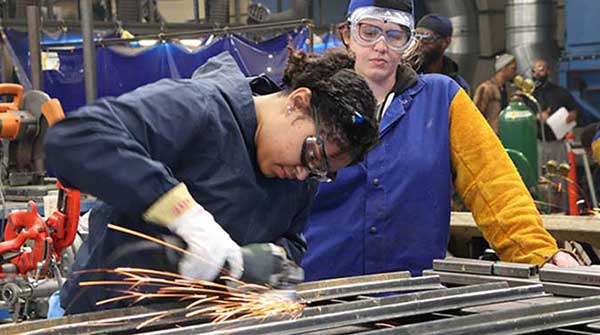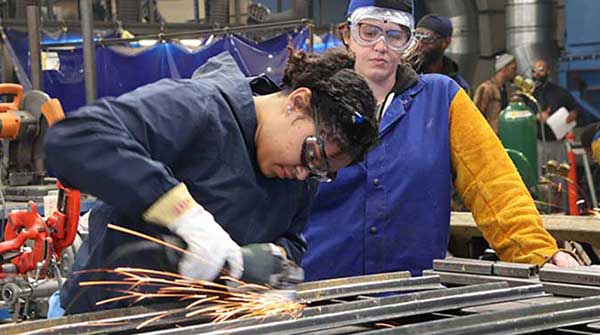Cost, debt, cancel culture, and the rise of internet-based learning are diminishing the demand for a university degree
 Going to university may no longer be the universal aspiration of ambitious youth planning careers. Although many parents still hope to see their offspring graduate from higher education, there are arguments for not heading to the ivy-covered campuses.
Going to university may no longer be the universal aspiration of ambitious youth planning careers. Although many parents still hope to see their offspring graduate from higher education, there are arguments for not heading to the ivy-covered campuses.
Cost is a big factor. Getting a degree often means taking out many student loans, thus acquiring a great deal of debt. And many of the jobs for new grads are not sufficiently well paid to eliminate that debt, let alone start a family, buy a house or otherwise get started on the path of adulthood.
A relatively new and disturbing element discouraging university attendance is an atmosphere on campus that makes many students (and some faculty) feel unsafe. Far from being a place of free-ranging discussion open to all opinions and ideas, academia has fallen victim to cancel culture where only one point of view may be expressed on many important issues, subjecting anyone expressing anything different to shouts, derision and fear, in some cases sufficient to push them off campus.
 Photo by PTTI EDU |
| Related Stories |
| Regulated career colleges key to solving labour shortages
|
| The importance of a diversity of opinion
|
| Creating better universities for a vibrant economy
|
Many parents and teachers who point out to young people the income-earning advantages of higher education will be reminded by those same youth that some of the wealthiest and most successful people did not attend university. Steve Jobs and Apple come to mind. Here in Canada, Jim Treliving joined the RCMP straight out of high school but left the force to become the first Boston Pizza franchisee in Canada. He is now one of Canada’s most successful entrepreneurs, with assets of $700 million.
Since the beginning of the Internet age, educational institutions no longer have a monopoly on higher learning. That monopoly has been waning since the invention of printing, but learning on your own exclusively from books has never been widespread. Now, just about all knowledge is available online. You can learn all the math you need and most other subjects often for free from websites like Kahn Academy.
Massive open online courses (MOOCs) are now available, covering just about everything provided by colleges and universities. You can register and acquire qualifications from an institution that is more highly ranked than you could attend in person, or you can just get the knowledge and apply it in your own business or working for others.
If you are not into obtaining a full degree or even taking whole courses but just need an answer to a specific question or a demonstration of how to do some particular task, be it fixing a dishwasher or doing a tricky surgical procedure, YouTube or other sites will offer videos and articles showing multiple ways to solve your problem.
When unemployment was higher than now and there were more workers than job openings, many employers, especially the larger ones, used to reduce the pile of incoming applicants by only considering post-secondary graduates, even when that post-secondary learning was not needed to do the job.
Now that there are more job vacancies than unemployed people to fill them, it is the job seekers who can be picky. Many organizations are now hiring anyone who can demonstrate that they can do the job whether or not they have a paper qualification. Those who acquired the skills on their own are sometimes preferred because of the initiative and dedication that demonstrates. However, when one needs much specific and high-level knowledge of how to do things such as in medicine, engineering and other very technical areas, attending university is still the best option.
One surprising group of employers is increasingly looking for college and university graduates – those in manufacturing. Right now, the sector of the American workforce with the highest proportion of workers with post-secondary education is the goods-producing sector. With high wages and scarce labour, making cars, appliances, tools, and even simpler things like clothing is highly automated. Machines make things, and the only workers needed are those with up-to-date technical skills that can produce, program, operate and maintain those increasingly intelligent machines.
Manufacturing (think car assembly lines) used to need large amounts of relatively unskilled labour. Because such labour was well paid in North America relative to other places, off-shoring took many of those jobs to lower-wage areas like Asia. Now, the U.S. and other countries are talking about re-shoring and bringing manufacturing back. This will help ensure local security of supply and will generate jobs, but the jobs it generates will not be the large numbers of well-paid, lower-skilled positions that existed before.
Instead, the openings will be fewer, very well paid and require a degree of knowledge, particularly in the STEM areas, well beyond what the car assembly job of the 1950s or even 80s asked for. Politicians and others hoping that re-shoring will bring back the jobs of those decades will be disappointed.
Dr. Roslyn Kunin is a public speaker, consulting economist and senior fellow of the Canada West Foundation.
For interview requests, click here.
The opinions expressed by our columnists and contributors are theirs alone and do not inherently or expressly reflect the views of our publication.
© Troy Media
Troy Media is an editorial content provider to media outlets and its own hosted community news outlets across Canada.

